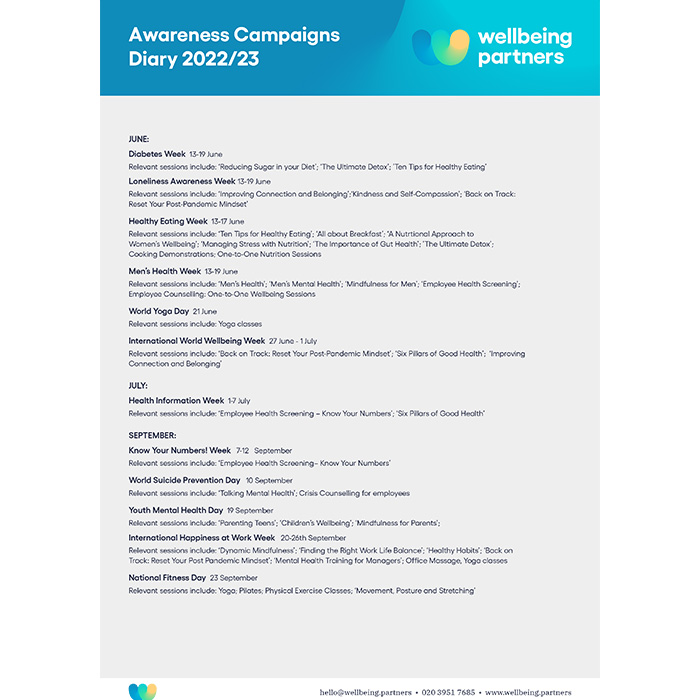That menopause is becoming more widely discussed in the workplace is something to be celebrated. There is much hard work, led by women, around increasing the understanding of menopause and removing stigma and shame around this normal, natural phase in women’s lives. However, as the topic becomes more widely discussed, there is a growing trend for menopausal women to be discussed as a homogenous group, who all share the identical, challenging journey through menopause. This is not the case at all, and it is vital for workplaces to understand the distinctions and vast range of experiences of women, so that they may be supported in a way that is empowering and enables them to thrive at work.
Menopause is a complex and individual experience and encompasses distinct phases of peri-menopause, menopause and post-menopause – lasting an average of 7 years. Symptoms are different for every woman, and mental health-related symptoms in particular evolve and change through these three phases. Around 25% of menopause women experience no symptoms at all, around 50% will likely experience an average of 3 or 4 symptoms that come and go at different times and may interfere with the ability to function at work, while a further 1 in 4 experience symptoms so severe and debilitating that they can struggle to continue with their careers.
Side effects/symptoms
Hot flushes that last for several minutes and result in often unbearable levels of heat and sweat around the face and chest are the most common symptom and can cause a high degree of discomfort, and embarrassment for some, especially at work. Some women experience hot flushes occasionally, while others will have an average of 20 hot flushes per day for several years! Night sweats and disturbed sleep are also commonplace, with menopausal women being the group most likely to experience chronic insomnia, which can result in exhaustion and concentration lapses at work.
Other common symptoms include severe joint pain, fatigue, vertigo and heart palpitations, thinning hair, dry or itchy skin and acne, and changes in weight and body shape, For many “brain fog” and memory loss are common and highly debilitating symptoms – something that can be easily misunderstood by managers, and can be very frightening for those women affected.
Menopause, mood and mental health
The various stages of menopause impact many women’s mood and mental health. These can be linked to hormonal and biochemical changes, but mental health issues can also be triggered by thoughts and feelings around the end of fertility, changing appearance or loss of identity during this period of enormous change. It is common for menopausal women to feel grief, shame, fear and resentment.
Irritability is the most common mood complaint, experienced by 70% of menopausal women. It is especially important that organisations and leaders understand the depth of this challenging occurrence. Strong waves of irritability, anger or rage, can last from several hours to several days, particularly in peri-menopause.
Higher levels of anxiety are reported by 51% of peri- and menopausal women – waves of anxiety can appear quite suddenly, for no apparent reason, and can be very challenging at work in particular, leading to a loss of confidence and self-assurance.
Approximately 20% of menopausal women will experience depression, particularly in the 3 to 4 years after periods stop completely (post-menopause). At its most impactful, depression can lead to suicidal thoughts and feelings, and is therefore something that must be taken extremely seriously. The highest rate of suicide amongst women in developed countries is in the age-group 45-54 years.
Fortunately, prescription Hormone Replacement Therapy (HRT) is highly effective in reducing debilitating symptoms for the vast majority of women. And workplaces should promote their mental health support services such as employee assistance providers or, better, in-house counselling services to women, to help navigate the challenges.
How to Support Menopausal Women in the Workplace
There has been an atmosphere of shame and stigma unfairly and outdatedly attached to the menopause for so long, and we need to change that narrative. Organisations and leaders are advised to encourage discussion and acceptance of menopause in the workplace, creating the space for education and conversation.
Key Tips for Workplaces
- Have a menopause policy and factsheet – well publicised and accessible. There are many great examples of menopause policy templates online
- Having a “Menopause Champion” in your workplace is helpful for creating an open culture around menopause, and can provide information and support to women as well as other employees
- All line managers should be trained in menopause awareness, and should develop a willingness to discuss and support the individual needs of menopausal women in their team to help them thrive at work
- Ensure that menopausal women in your organisation are given opportunities for career development – mature women are highly skilled at collaboration, multitasking, mentorship and bring a wealth of experience – and are ideally placed to manage younger generations of workers and their evolving needs
- Show images of mature women in your marketing and communication materials – all genders and age groups should be represented for the workplace to be fair and equitable
About: Our author, Lou Campbell, is a fully qualified counselling psychotherapist, sleep therapist, Mental Health First Aid instructor and co-founder of Wellbeing Partners. Lou and her team specialise in providing confidential mental health support in workplaces, offer consultancy for HR leaders to ensure every menopausal woman is being supported based on their needs, and provides training to line managers so they are able to understand and support menopausal women in their teams.









